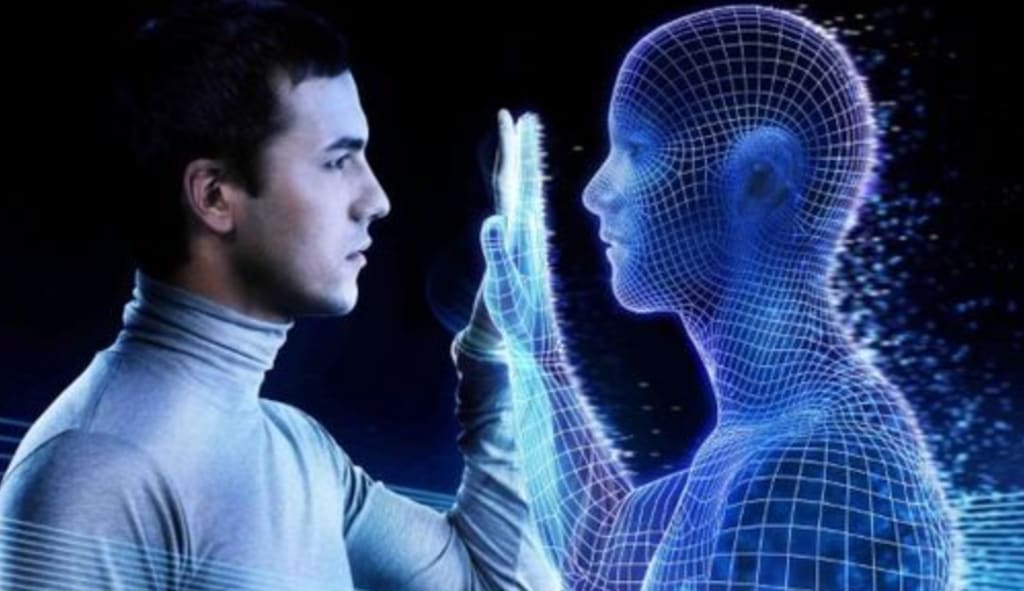
Introduction
Artificial Intelligence (AI) is a rapidly advancing technology that has the potential to transform industries and revolutionize society. AI refers to computer systems that can perform tasks that typically require human intelligence, such as recognizing patterns, processing large amounts of data, and making decisions. AI is becoming increasingly sophisticated, and it is rapidly expanding its range of applications across various industries. In this article, we will explore the power of AI and its unmatched capabilities that allow it to do things that humans cannot. We will examine the advantages of AI over humans, its applications in different industries, the challenges and limitations of AI, and the future of this technology. Overall, this article will provide a comprehensive overview of the power of AI and its impact on society.
Advantages of AI Over Humans
AI has several advantages over humans that make it a powerful tool for solving complex problems and performing tasks that would be difficult or impossible for humans to accomplish. Here are some of the key advantages of AI over humans:
A. Processing Power: AI systems can process large amounts of data much faster than humans, which makes them well-suited for tasks that involve analyzing massive data sets.
B. Consistency: AI systems can perform tasks consistently and reliably, without being affected by factors such as fatigue, emotions, or distractions. This makes them useful for tasks that require a high level of accuracy and precision.
C. Pattern Recognition: AI systems can quickly recognize and analyze patterns in data, which makes them useful for tasks such as image and speech recognition.
D. Multitasking: AI systems can perform multiple tasks simultaneously, which makes them highly efficient at handling complex tasks that involve multiple steps.
E. Speed: AI systems can perform tasks much faster than humans, which can help to reduce the time and cost involved in completing certain tasks.
F. Objectivity: AI systems are not influenced by biases or emotions, which makes them more objective in decision-making than humans.
Overall, these advantages make AI a powerful tool for solving complex problems and performing tasks that would be difficult or impossible for humans to accomplish. As AI continues to evolve and improve, its advantages over humans are likely to become even more significant.
Applications of AI
AI has a wide range of applications across various industries. Here are some examples of how AI is being used in different fields:
A. Healthcare: AI is being used in healthcare to improve patient care and outcomes. For example, AI can analyze patient data to help doctors diagnose diseases and develop treatment plans. It can also monitor patient vital signs in real-time and alert doctors to potential issues.
B. Manufacturing: AI is being used in manufacturing to improve efficiency and productivity. For example, AI can optimize production schedules, predict maintenance needs, and identify quality control issues.
C. Transportation: AI is being used in transportation to improve safety and efficiency. For example, self-driving cars use AI to navigate roads and avoid accidents. AI can also optimize traffic flow and reduce congestion.
D. Finance: AI is being used in finance to improve fraud detection, risk management, and customer service. For example, AI can analyze large amounts of financial data to identify potential fraud or market trends.
E. Education: AI is being used in education to personalize learning and improve student outcomes. For example, AI can analyze student data to identify areas where students need additional support and provide personalized recommendations.
Overall, these applications of AI are just a few examples of how this technology is transforming industries and improving the quality of life for people around the world. As AI continues to advance, we can expect to see even more innovative applications in a wide range of fields.
Challenges and Limitations of AI
While AI has many advantages, there are also several challenges and limitations that need to be addressed. Here are some of the key challenges and limitations of AI:
A. Unemployment: As AI systems become more advanced, there is a risk that they could replace human workers, leading to unemployment and economic disruption.
B. Bias: AI systems can be biased if they are trained on biased data or if their algorithms are not designed to account for biases. This can lead to unfair outcomes and perpetuate societal inequalities.
C. Safety: AI systems can pose safety risks if they are not designed and tested properly. For example, self-driving cars could cause accidents if their algorithms are not properly trained to avoid potential hazards.
D. Ethics: AI raises ethical questions about issues such as privacy, transparency, and accountability. For example, who is responsible if an AI system makes a decision that harms someone?
E. Cost: Developing and implementing AI systems can be expensive, which could limit their adoption in certain industries or countries.
Overall, these challenges and limitations highlight the need for responsible and ethical development and deployment of AI systems. As AI continues to evolve and become more advanced, it will be important to address these challenges to ensure that the benefits of AI are realized while minimizing its negative impacts.
Future of AI
The future of AI is exciting and full of possibilities. As the technology continues to advance, we can expect to see even more innovative applications and benefits. Here are some potential developments in the future of AI:
A. Advancements in Deep Learning: Deep learning, a subset of machine learning, has revolutionized the field of AI. As research in this area continues, we can expect even more powerful and sophisticated AI systems.
B. Human-Machine Collaboration: Rather than replacing human workers, AI systems could be designed to work alongside humans, complementing their skills and improving productivity.
C. Personalization: AI systems can be used to personalize experiences for individual users, such as recommending products, services, or content that are tailored to their preferences and behaviors.
D. Better Healthcare: AI can be used to develop new treatments, improve patient outcomes, and reduce healthcare costs. For example, AI could be used to develop personalized treatment plans based on a patient’s genetic profile and medical history.
E. Autonomous Systems: Autonomous systems, such as self-driving cars and drones, could become more prevalent as AI continues to improve. This could lead to safer, more efficient transportation and logistics.
Overall, the future of AI is full of potential and opportunities. As AI continues to evolve and improve, it will be important to ensure that its development and deployment are guided by responsible and ethical principles. By doing so, we can harness the power of AI to improve our lives and solve some of the world’s most pressing challenges.
Conclusion
In conclusion, the power of AI is undeniable. From improving healthcare outcomes to optimizing production schedules, AI has the potential to transform industries and improve the quality of life for people around the world. However, the challenges and limitations of AI must also be addressed, such as the risk of unemployment, bias, safety concerns, ethics, and cost. As we look to the future of AI, it is important to ensure that its development and deployment are guided by responsible and ethical principles to maximize its benefits while minimizing its negative impacts. With responsible development and deployment, the future of AI is full of exciting possibilities that can enhance our lives in ways we can’t even imagine yet.
About the Creator
Samuel
I write about Science/Tech/Business & Anything that can give value to people ❤️
I'm on YouTube too guys feel free to check out my channel here: www.youtube.com/@sambladeco






Comments
There are no comments for this story
Be the first to respond and start the conversation.